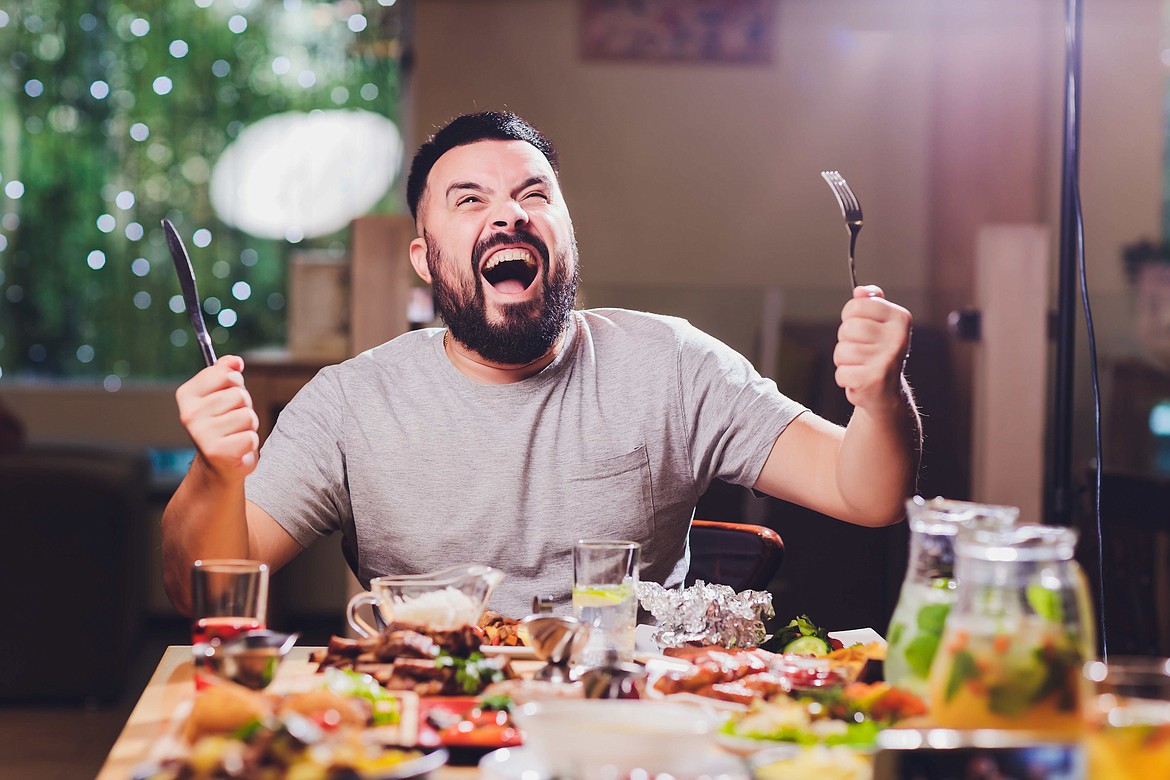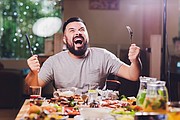Death by Fork…Why can’t we change our eating habits?
By JOLIE JANTZ,
PharmD, CDE
Heritage Health
Why is it so difficult to steer ourselves away from foods we know are destructive when we know that the food we fuel our bodies with is directly correlated with our health and well-being? A large factor in that answer is habit.
Margaret Mead, an American cultural anthropologist who was popular in the 1960s and 1970s, may have said it best with, “It is easier to change a man’s religion than to change a man’s diet.” I’m assuming she meant this to be applied to women too.
What is it that makes us compelled to eat fast food rather than home-cooked meals?
Habit. Upbringing. Cultural norms.
These are incredibly powerful influences in our life decisions that take some serious consideration before attempting change.
As a healthcare provider, one of the hardest barriers to overcome is cultural norms. As our society becomes more comfortable with obesity despite its established health risks, it is harder and harder to convince people of the need to change.
We are now part of a culture where 1 in 3 of us is obese. We are raised surrounded by obesity and therefore accept this as a “norm” and not something that needs to be changed. When I look at a patient and can estimate risk of stroke and heart attack in part by the size of his or her body, where does the conversation even start if that patient doesn’t recognize obesity as a problem?
As a diabetes educator, I cannot change cultural perspectives on what weight should or shouldn’t be acceptable. I can only educate the individual. I counsel my patients every day about the impact certain foods have on their blood sugar and how this blood sugar control affects their risk for heart attack, stroke, or kidney disease.
Do I tell them what foods not to eat? No. It has been proven time and again that successful change must come from positive motivation rather than restriction.
If we tell ourselves that we can’t have sugar or bread, I can guarantee you that no donut or cheesecake will be safe within a 10-mile radius. You can’t be successful by saying, “Just don’t eat that anymore.” But how do you convince someone to make better food choices every day?
Let food be your medicine. Our culture is so obsessed with medications being the quick fix for everything, we have lost sight of the simple answer.
Rather than a pill in the morning because your joints ache, eat a spinach omelet instead of boxed cereal. Rather than a pill to help you sleep, eat a dinner low in simple carbs. It’s amazing how few people recognize the connection between high intake of sugars and chronic pain or insomnia.
I had a patient last week who came to me hoping to get off some of his many meds, vitamins, and supplements. The meds he brought to the visit filled two grocery bags! After discussing which vitamins may be replaced by changes in diet and which supplements may be unnecessary or even harmful, he was able to cut back on the number of pills he was taking daily. We are also hopeful that some of the changes in his diet may allow him to be taken off some of his blood pressure pills.
Imagine how much nicer to eat salad rather than a handful of pills! Let’s make a commitment to healthier eating that will lead to better living and less reliance on medications. I know it isn’t easy, but I know we can change our eating habits.
It’s not like I’m asking you to change your religion…
• • •
Dr. Jantz is a clinical pharmacist and certified diabetes educator for Heritage Health. When not helping her patients lead healthier and happier lives, she is often out riding her horses, competing in triathlons, or participating in lip sync battles to raise money for local charitable organizations.



